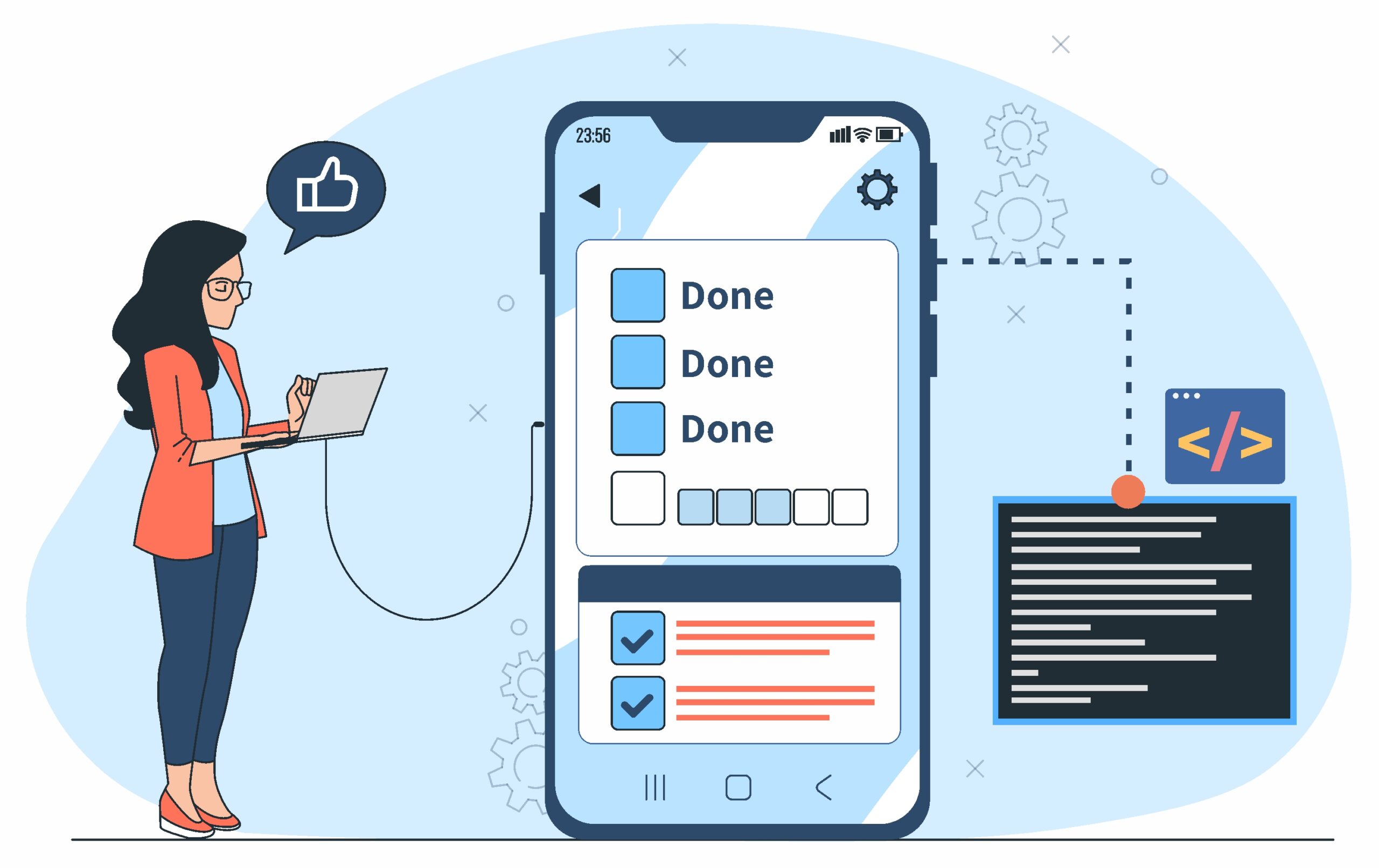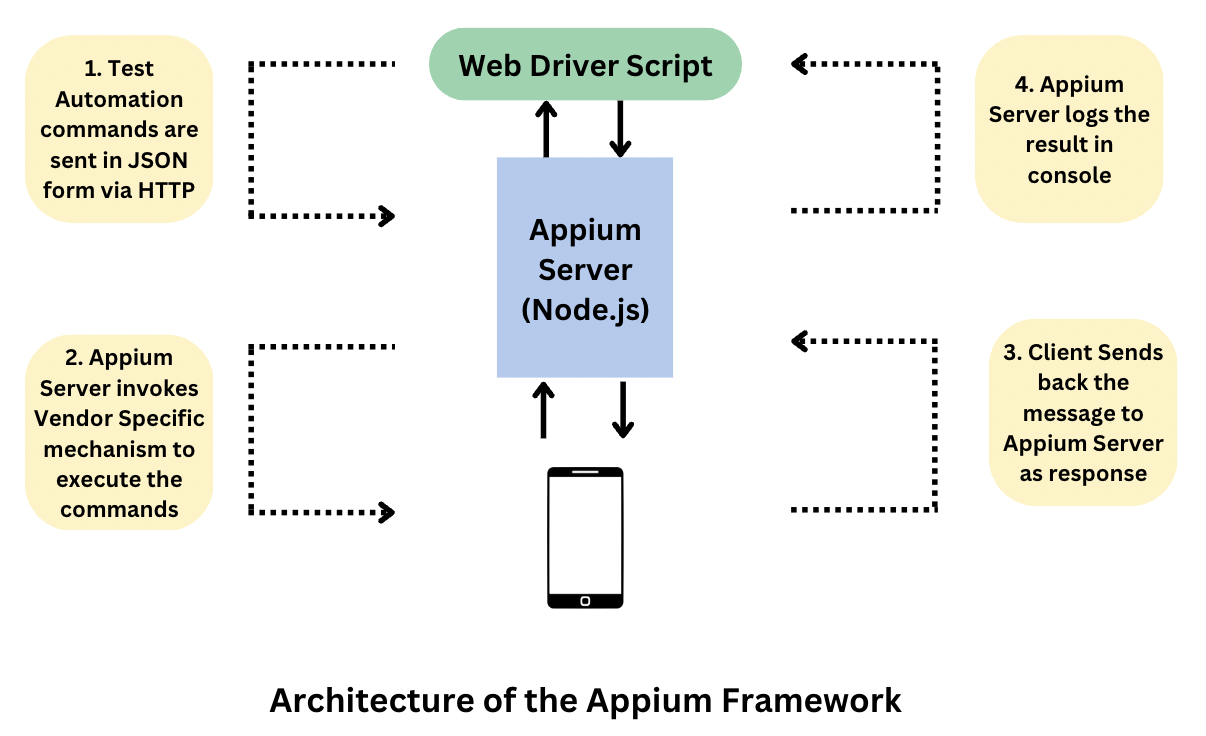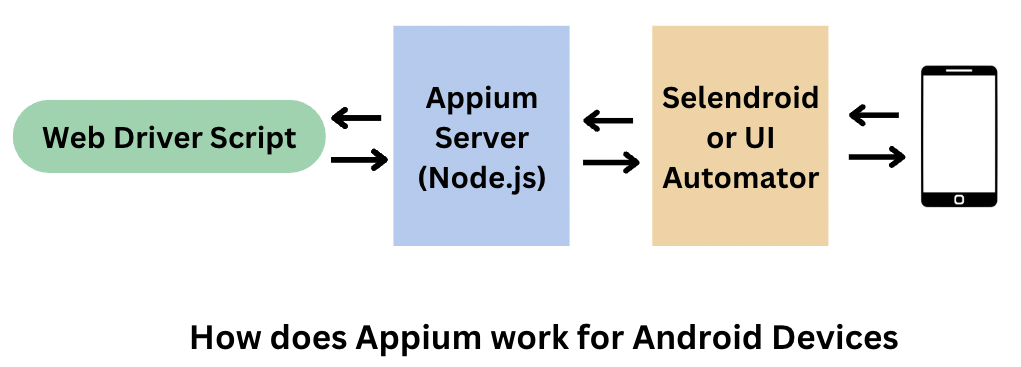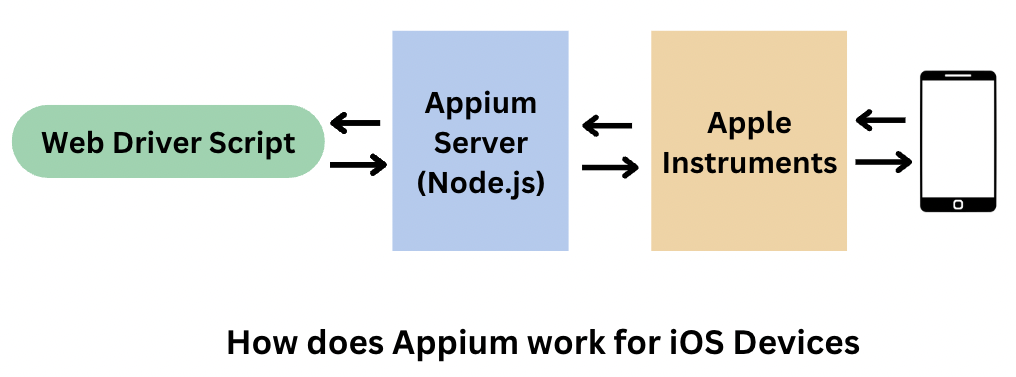App Automation Using Appium on Cloud
What is Appium Mobile App Testing?
Appium mobile app testing leverages the open-source Appium framework, designed specifically for automating mobile app testing processes. It allows developers to write tests for mobile applications, enabling automated testing of both native and hybrid mobile apps across iOS and Android platforms.
Appium works by interacting with apps as a user would, simulating actions like tapping, swiping, and typing without needing access to the app’s source code. This makes it a versatile tool for ensuring app quality across different devices and operating systems, streamlining the development process by facilitating easy testing and debugging.
Why Should You Use The Appium Mobile Testing Framework?
Choosing Appium as a mobile testing framework can offer several advantages:
- Cross-platform Capability: Appium supports cross platform testing for both iOS and Android platforms, making it ideal for teams working on apps for multiple platforms without switching testing frameworks.
- Open Source: Appium is an open-source framework, which means it’s freely available for use and can be customized to fit specific testing needs. Additionally, it benefits from a large and active community that contributes to its development and support.
- Language Agnostic: With Appium, you can write tests in multiple programming languages such as Java, Python, JavaScript, C#, Ruby, and others. This flexibility allows teams to choose the language they are most comfortable with or that best fits their project requirements.
- Native and Hybrid App Support: Whether your app is native, hybrid, or web-based, Appium supports testing for all types. This flexibility is crucial for teams developing apps with various architectures.
- Integration with CI/CD Pipelines: Appium can be seamlessly integrated into Continuous Integration (CI) and Continuous Deployment (CD) pipelines, allowing for automated testing as part of the development process. This integration helps catch bugs early and ensures consistent quality across releases.
- Wide Range of Automation Tools Compatibility: Appium can work with various automation tools and frameworks, such as Selenium WebDriver, allowing for code reuse and leveraging existing knowledge and resources.
- Robust Community Support: With a large and active community of users and contributors, Appium offers extensive documentation, tutorials, and forums where users can find help, share knowledge, and collaborate on solving issues.
- Support for Real Devices and Emulators/Simulators: Appium supports testing on both real devices and emulators/simulators, providing flexibility in testing environments and ensuring comprehensive coverage.
- Comprehensive Testing Capabilities: Appium supports various types of testing, including functional testing, UI testing, performance testing, and more, enabling teams to perform comprehensive testing throughout the development lifecycle.
Try Appium testing on Real Devices
The Architecture of the Appium Framework
The architecture of the Appium Framework is based on a client/server model. Appium itself acts as an HTTP server built on the Node.js platform. It features a REST (Representational State Transfer) API and integrates with Selenium WebDriver. This architecture allows for seamless communication between the client and server components. Appium allows the use of the available WebDriver client to fire the tests.
The REST API performs the following actions:
- Receives the connection from the client side
- Listens to the command
- Executes the command on a mobile device
- Returns the command execution status as an HTTP response to the client.
- Automation in Appium revolves around sessions. The client library (Java, JavaScript, PHP, Ruby, Python, or C#) initiates a session by sending a POST /session request to the server. This request includes a JSON object known as the Desired Capabilities object, which specifies the requirements and settings for the session.
- Upon receiving the POST /session request, the server starts the automation session and assigns a session ID. This ID is crucial for sending further commands relevant to the ongoing session.
How does Appium work?
Appium automates application interactions by utilizing the functionality of UI components such as buttons, text boxes, and links. It enables the creation and execution of tests against the target application across multiple sessions.
To begin your journey into test automation, explore BrowserStack Test University, offering real devices for hands-on learning to master software testing fundamentals.
For Android Devices:
Appium utilizes the UIAutomator framework (or Selendroid) designed for testing the Android user interface, enabling automated testing on Android devices. The bootstrap.jar file functions as a TCP server, facilitating the transmission of test commands to interact with the Android device using the UIAutomator or Selendroid framework.
For iOS Devices:
Similarly, Appium employs the JSON wire protocol for iOS devices. It leverages Apple’s UIAutomation API to interact with UI elements, automating testing on iOS devices. The bootstrap.js file serves as a TCP server, sending test commands to the iOS device via Apple’s UIAutomation API framework.
Appium vs Selenium
| Appium | Selenium | |
| Purpose | Used to automate tests for native, hybrid(.ipa and .apk) and mobile web applications. | Used to make web-app testing easier by automating browser actions using WebDriver. |
| Coverage | Appium can automate tests for both mobile (Android, iOS) and desktop applications. | Selenium can automate web application testing on multiple browsers. |
The choice between Appium and Selenium depends on your project’s specific needs and testing requirements. Appium is tailored for mobile app automation, supporting multiple programming languages and frameworks, making it ideal for testing native and hybrid mobile applications.
Selenium is widely used to automate web applications. If you are focusing on automating native and hybrid mobile app testing, Appium is the preferred option. Selenium is more suitable for web application testing. You can also use both tools together based on your project’s needs.
The most effective way to comprehend these frameworks is through practical usage. Tests will be conducted using both Selenium and Appium to gain genuine and actionable insights.
Regardless of your choice between Appium and Selenium, testing on real devices is crucial.
Why choose BrowserStack?
BrowserStack provides an efficient and reliable mobile app testing. It facilitates automated app testing via Appium (and other frameworks) on a real device cloud containing actual Android and iOS devices.
Listed below are a few benefits that BrowserStack provides:
- Real Device Cloud: Access a wide range of real iOS and Android devices instantly for precise Appium mobile app testing results with our real device cloud.
- Speed up your test runs: Accelerate your test runs by executing tests concurrently across thousands of devices, enhancing efficiency.
- Get up and running in no time: Start testing immediately with a seamless setup and enjoy uninterrupted uptime.
- Test development servers: Test your apps on internal development and staging environments or behind firewalls effortlessly, with zero setups or configuration required.
- Debug and fix instantly: Instantly debug and resolve issues with text logs, video recordings, and screenshots of the test run.
- Easy app upload: Streamline app uploads effortlessly. Utilize the REST API to query your latest builds or upload new ones without redundancy.
How to Run Appium Tests on BrowserStack
- Login to BrowserStack App Automate
- Select a language or framework of your choice.
- Get the Prerequisites ready
- Download sample project
- Configure your browserstack.yml config file
- Run sample tests on BrowserStack. Learn more
Appium stands out as a reliable choice for automating mobile app testing, thanks to its cross-platform capabilities, language support, and robust features. By leveraging Appium, teams can streamline their testing processes, ensure thorough coverage, and deliver high-quality mobile applications to users.
Empower your Appium mobile app testing efforts with BrowserStack’s App Automate platform. Access real devices instantly, streamline your testing workflows, and ensure seamless cross-browser and mobile app compatibility. Take your testing to the next level with BrowserStack –




